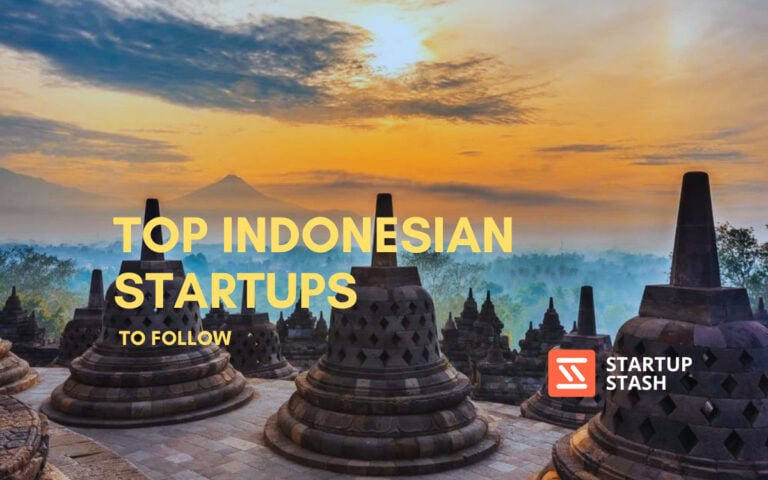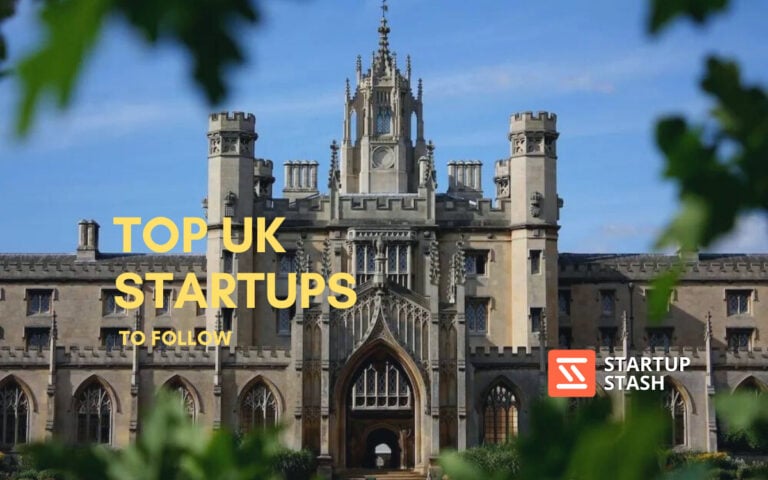The biggest data science meetups and seminars can help you connect, know about new technologies, develop your abilities, and even find ideal practices that will make your job easier. You'll understand and know about new technologies, approaches, and personal observations with data problems and how to deal with them in various Big Data Conferences. You will also receive practical advice and ideas for your data-related corporate issues. At these big data conferences, you may get the opportunity to connect with big personalities in the industry.
Here is the list of top conferences to attend in 2023.
1. CISO Forum Canada 2023
Website: CISO Forum Canada
Date: 30-31 January
Location: Toronto, Canada

Brought to you by SiberX, CISO Forum Canada brings speakers, sponsors, and attendees from all over the world to examine the constantly changing field of executive information security management. Topics focus on leadership, innovation, strategic management, and cutting-edge solutions to the difficulties of overseeing data security programs.
Overview of the Conference:
-
Welcome/Introductions
-
Keynote Speeches
-
Panel discussions
-
Incident Management Preparedness and Response Management Workshop
-
Closed-Door Roundtables
Who Should Attend:
- Director-level (or above) security experts
2. Data Connectors Cybersecurity Conference 2023
Website: Data Connectors
Date: 2 February
Location: Salt Lake City, Utah, USA

The Salt Lake City Cybersecurity Conference is an excellent conference to connect with cybersecurity experts and industry specialists for live, in-person sessions. Topics will range from cloud security to safeguarding your organization from evolved threats. You’ll hear from industry professionals, luminaries, and delegates from some of the world’s top cybersecurity solutions providers.
Overview of the Conference:
-
Introductory talks
-
Featured speeches by industry experts
-
Keynote Speeches
-
Networking Reception
Who Should Attend:
-
Industry professionals
-
Data Science experts
-
Cybersecurity specialists
-
Cybersecurity analysts
3. Deep Learning Summit
Website: Deep Learning Summit
Date: 15-16 February
Location: San Francisco

One of the msost awaited Big Data Conferences, this one will bring you the most recent technological developments as well as empirical evidence of how AI may be used to solve problems in industry and community. Prominent pioneers will speak about breakthroughs in deep learning and AI to the participants. Industry professionals will help you learn about analytics, machine learning, and big data.
Overview of the Conference:
-
Interactive Q&A
-
Access Complimentary Presentations
-
Expert Speakers
-
Attend virtually from any device
Who Should Attend:
-
Developers
-
Data scientists
-
DevOps specialists
-
IT decision makers
4. Subsurface Live Summer
Website: Subsurface Live
Date: 1-2 March
Location: Virtual, San Francisco, London, New York

This program will cover the most recent open-source breakthroughs as well as meaningful applications. Technical experts from businesses will speak about their perspectives on designing and developing and creating advanced data lakes. Attendees will also discover how to use open-source tools to create new products.
Overview of the Conference:
-
Understand how to use open source technology to create
-
Data visualization
-
Current trends and initiatives.
Who Should Attend:
-
Technology experts
-
Open source innovators
-
Data engineers
-
Data architects
5. Industry of Things World USA
Website: Industry of Things World USA
Date: March 19-21
Location: California

According to the organizers of Big Data Conferences, this is the most important commercial forum for industrial automation and corporate IoT. The conference will emphasize true, end-user case reports that show how intelligent production innovations are transforming organizations and sectors. Experts from all across the world provide their perspectives on topics and present techniques.
Overview of the Conference:
-
Hybrid conference experience
-
Interoperability
-
Analytics
-
New business models
Who Should Attend:
-
Chief data officers
-
Business intelligence
-
Data governance practitioners
-
Data scientists
6. Enterprise Data World
Website: Enterprise Data World
Date: 27-31 March
Location: Virtual

Enterprise Data World (EDW) has been acknowledged as the biggest global instructional conference on data processing for the past 26 years, and this season's program will keep up the legacy of providing in-depth skills learning for data-driven individuals from all over the world.
Every year, the event begins with in-depth lectures, then proceeds with countless hours of instructional content provided by prominent industry professionals during the week, culminating. These renowned presenters will share their research studies, perspectives, and understanding on a variety of topics. Renowned presenters definitely increase the worth and credibility of Big Data Conferences.
Overview of the Conference:
-
Data Literacy
-
Cloud Computing
-
Big Data
-
Master data management
-
Data Architecture
-
Data Analytics
Who Should Attend:
-
Chief data officers
-
Data and information architects
-
Information quality professionals
-
Data scientists
-
Big data engineers
7. Data Summit
Website: Data Summit
Date: 10-11 May
Location: Boston

Participants at Data Summit 2023 will learn about the ways taken by the globe's biggest corporations to address important data management concerns. Officials claim that Data Summit 2023 has a little of everything, whether guests are interested in the technological opportunities and problems of new and developing innovations or in utilizing big data for corporate information, analysis, and other strategic plans.
So, this one had to be on our list of the best Big Data Conferences in 2023.
Overview of the Conference:
-
AI and Machine Learning
-
Data Ops boot camp
-
Database and DevOps boot camp
Who Should Attend:
-
Database administrators
-
Application developers
-
Software engineers
-
Data architects
-
Technology specialists
-
Data analysts
-
Data scientists
8. AI & Big Data Expo North America
Website: AI & Big Data Expo North America
Date: 17-18 May
Location: Santa Clara Convention Center, California

This conference is for corporate tech experts who want to learn about the newest technologies, deployments, and corporate strategy. In individual lectures, professional panel conversations, and in-depth discussions, over 250 presenters will share their professional expertise and true insights. Simplifying AI, establishing an AI-powered organization, chatbots, and computer vision are just a few of the topics covered.
Overview of the Conference:
-
Demystifying AI
-
Machine learning
-
Decision science
-
RPA and automation
-
infrastructure
-
Data analytics,
-
Customer experience
-
Computer vision
-
Voice technology
-
NLP
Who Should Attend:
-
Chief data officers
-
Chief data scientists
-
Brand managers
-
Data analysts
-
Tech providers
-
C-level executives
-
Venture capitalists
9. World Data Summit
Website: World Data Summit
Date: 17-19 May
Location: Amsterdam, The Netherlands

Participants will have a better knowledge of establishing an analytical framework for their company and consumer growth during this three-day event. Professionals will talk on various areas of data analysis, including how to work with unstructured data and how to improve data visualization and understandability. Participants can also take a session to learn more about consumer insights or to expand their technological skills.
Overview of the Conference:
-
Data Analytics and Modelling
-
Data Science
-
Customer and Market Insight AnalyticsData Science
-
Data Integration and Artificial Intelligence
-
Business Analytics
-
Predictive Analytics
-
Data Architecture
Who Should Attend:
-
Data Scientists
-
Business analysts
-
Customer and market insight analysts
10. Big Data Analytics (BDA) Conference
Website: White Hall Media
Date: 14 June
Location: London

The conference will be held in two sessions. The first session covers topics such as creating an agile, adaptable, and powerful big data architecture, pattern classification in data from multiple sources, and improving business modeling and strategy. It will cover the ways to get the best out of corporate data in a brief. The second session will concentrate on eliminating significant barriers and enhancing productivity.
Overview of the Conference:
-
Discover how to remain a data-driven leader.
-
Learn how to effectively deploy big data analytics technology.
-
In big data projects, a better picture of how to get from prototype to operation
Who Should Attend:
-
DBAs
-
Data architects
-
Data scientists
11.MLDM 2023: 17th International Conference on Machine Learning and Data Mining
Website: Machine Learning and Data Mining
Date: 15-19 July
Location: New York

The goal of this event is to bring up machine learning and data mining experts from around the globe. They'll talk about the current state of recent studies as well as other issues.
Overview of the Conference:
-
Data Analysis Issues
-
Prototype Evaluation and Identification
Who Should Attend:
- Data Mining Professionals
12. Gartner Data & Analytics Summit
Website: Gartner
Date: 20-22 August
Location: Orlando, FL

The Gartner Data and Analytics Summit focus on the major problems that data analytics experts face as they work to create tomorrow's inventive and flexible enterprises. The conference will concentrate on developing data and analytics approaches that facilitate online acceleration, as well as a profound plunge into the data and analytics developments and methods that will modify organizations and the leadership capabilities required to create a resourceful, versatile, and data-literate organization.
Overview of the Conference:
-
Major developments in data and analytics
-
Tackles the most pressing issues that data analytics professionals are confronted with
-
Utilize data and analytics to maximize the impact
Who Should Attend:
-
Software developers
-
Project managers
-
Data analysts
13. Data Science Salon: AI and Machine Learning in the Enterprise
Website: Data Science Salon
Date: 13-14 September
Location: Miami, Florida

The Data Science Salon began as a small gathering of data analysts, machine-learning engineers, researchers, as well as other experienced data professionals. Participants will be able to develop their prescriptive analytics through interesting live sessions and group conversations, discover how to implement cutting-edge AI and ML approaches in the industry, and network with prominent data scientists in a pleasant setting.
Overview of the Conference:
-
Boost your data presenting and group discussion expertise by participating in live events.
-
Talk and network with prominent data scientists in a relaxed and informal setting.
-
Interactive QnA discussions, you can ask experienced presenters questions.
-
Explore how to use cutting-edge AI and computational intelligence methods in the workplace.
Who Should Attend:
-
Senior data scientists
-
Data decision makers
14. Open Data Science Conference
Website: Open Data Science Conference
Date: October 31-November 3
Location: To be announced

One of the globe's biggest advanced big data conferences, the ODSC West Conference is branded as such. A few of the key developers of several expansive programs, frameworks, and languages are among the lecturers. Participants would get to learn from many of the finest and sharpest in the industry about the current AI and data science subjects, technologies, and languages.
Overview of the Conference:
-
In-person sessions
-
Hands-on training
-
Hhybrid ODSC
-
Data engineering
-
Cyber Security
Who Should Attend:
-
Data scientists
-
Software engineers
-
Analysts
-
Managers
Conclusion
These were the top 14 Big Data Conferences to Attend in 2023 and not miss at any cost. A few of them are also completely free and virtual which increases more of your chance to attend them.
So, checkout if any of the Big Data Conferences matches your schedule, and get some more knowledge!
FAQs
What is Big Data?
Big data is defined as data with increased diversity, coming in higher quantities and with higher speed. Simply said, big data refers to larger, more complicated data sets, particularly those derived from new data providers. Since these data sets are so huge, typical data assessing technologies can't monitor them. Neverthless, these large quantity of data can be used as an advantage to handle business issues that you previously couldn't address.
Big data has now become a form of wealth. If we look at few of the most well-known IT firms across the glob, they derive a significant portion of their worth from their information, which they are continuously evaluating in order to improve productivity and build innovative goods. Recent technical developments have cut the expense of data retention and computation by orders of magnitude, enabling it quicker and cheaper than ever to retain more information.
You can make better accurate and reliable business judgments with an expanded quantity of big data that is now affordable and more approachable. It's not only about studying large data to find meaning in it that is completely advantageous. It's a whole research approach that necessitates perceptive analysts, enterprise customers, and leaders who can ask the correct questions, spot trends, make educated conclusions, and forecast action.
What is the history of Big Data?
Even though the idea of big data is fresh, enormous data collections have their roots in the 1960s and 1970s, while the field of data was just starting up with the earliest data centers and the invention of the network system. People started to notice how much user information was created through various internet services during the year 2005.
The emergence of big data was aided by the advent of open systems, which make huge data simpler to deal with and manage. The size of the data has exploded in the decades ever since. People are certainly producing massive volumes of data, but it isn't just people. More products and gadgets are linked to the web as a result of the IoT, allowing companies to collect data on client consumption habits and product effectiveness.
Whilst big data has gone a long way, its utility is barely emerging. Cloud computing has opened up even more opportunities for big data . With its capacity to present huge volumes of data in a manner that makes analytics rapid and thorough, database systems are also becoming more essential.
Who is a Data Scientist?
A data scientist is a person who is in charge of gathering, processing, and comprehending massive volumes of data. Mathematicians, researchers, engineers, and computer experts are all examples of conventional technical positions that have evolved into data scientists. Sophisticated analytics tools, such as machine learning and statistical modeling, are required for this profession. To build theories, draw assumptions, and evaluate consumer and industry patterns, a data scientist needs a lot of data. Collecting and examining data, as well as employing different forms of analytical and monitoring tools to find patterns, tendencies, and linkages in data sets, are all basic duties of a data scientist.
Data scientists in the corporate world usually work in groups to mine huge data for insights that can be employed to forecast consumer activity and uncover new income prospects. In many firms, data scientists are also in charge of establishing industry standards for data collection, processing, and interpretation.
Data science skills have become more in supply as businesses seek to extract meaningful knowledge from big data, which refers to the massive volumes of several forms of data that a major corporation or the IoT generates and gathers.
What is the importance of Big Data Analytics?
Big Data technologies are designed to assist businesses in making more informed business choices by evaluating enormous amounts of data. Web server records, Web visit traffic information, information from customer inquiries, phone call information, and machine data gathered by numerous monitors can all be included.
Big Data solutions are being used by businesses across the board to examine massive data volumes for underlying structures, undiscovered connections, market dynamics, and other relevant business insights. Big data analytics enables businesses in assessing their data and identifying new outcomes.
As a result, better organizational decisions, more effective processes, increased revenues, and pleased consumers are the result. The emerging advantages of big data analytics, on the other hand, are pace and reliability. Working faster and remaining flexible gives businesses a strategic advantage they didn't have had previously.
What are the key technologies of Big Data?
Big data analytics is a wide aspect that involves a variety of technologies. Certainly, expert systems may be used with big data, but in fact, multiple forms of technologies collaborate to assist you to get the most out of your records. A few among the major technologies are:
Machine Learning: Machine learning is a subtype of AI that teaches a machine to understand allows for the rapid and automated creation of algorithms that can evaluate more, more huge systems and offer quicker, more exact responses even on a massive scale. A company's chances of recognizing profitable possibilities or preventing unforeseen risks are improved by developing detailed models.
Data Management: For the data to be successfully evaluated, it must be of excellent value and well-governed. With so much data coming in and out of a business, it's critical to have workflows for establishing and maintaining data performance standards. Once data is accurate, businesses should implement a big data control system to ensure that everyone in the corporation is on a relatively similar path.
Data Mining: Data mining technology allows you to analyse massive volumes of data to identify trends, which can then be utilized for additional research to solve complicated business problems. You can filter across all the jumbled and repetitious clutter in statistics with data mining tools, highlight what's important, use that knowledge to predict possible results, and then speed up the process of making knowledgeable choices.
To be at par with the constant changes in these, Big Data Conferences are essential.


